She said that while abuse cases are looked at case by case, child safeguarding must always emphasize the best interest of the child. “We may have conflicting laws, but we must be careful not to do anything that harms the child,” Sr. Ondeng emphasized.
The April 4-5 training for the Clergy, women and men Religious serving in Garissa Catholic Diocese brought together 25 participants, including all the 11 Priests who serve in the vast Kenyan Episcopal See.
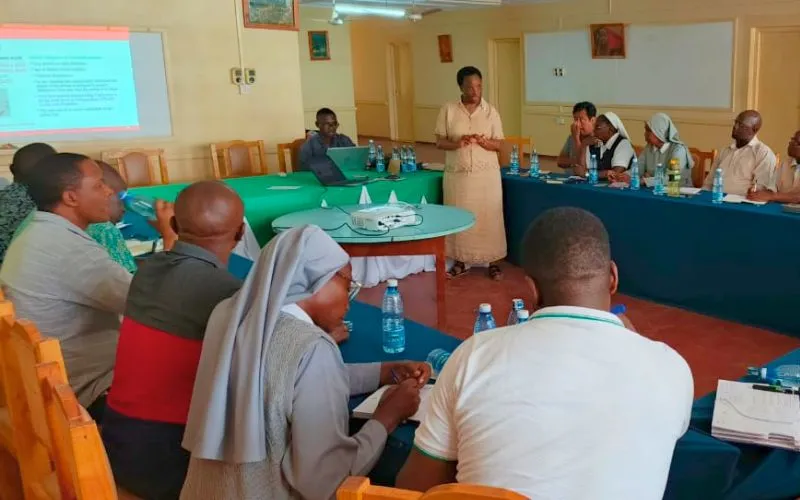 Credit: Catholic Diocese of Garissa/Fr. Frederick Namasaka
Credit: Catholic Diocese of Garissa/Fr. Frederick Namasaka
Also participating in the training that was realized in partnership with Missio Aachen was the Local Ordinary of Garissa Diocese, Bishop George Muthaka.
According to Sr. Ondeng, the training focused on the different types of abuses, including physical, sexual, emotions, neglect, and spiritual abuse among others.
(Story continues below)
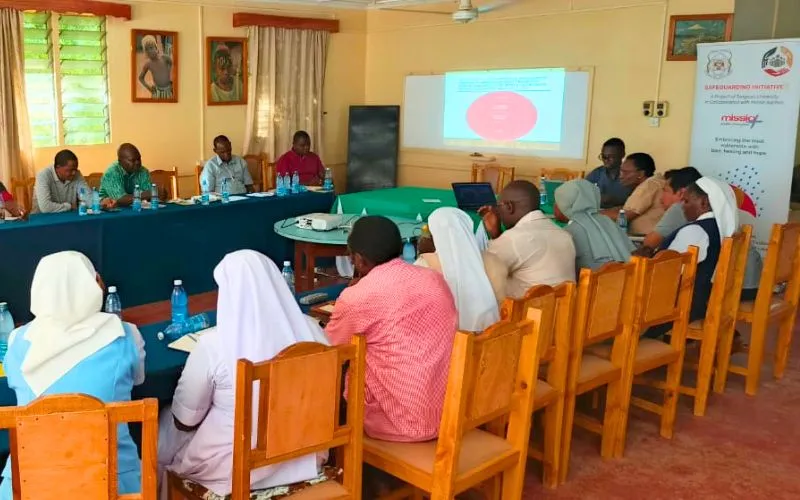 Credit: Catholic Diocese of Garissa/Fr. Frederick Namasaka
Credit: Catholic Diocese of Garissa/Fr. Frederick Namasaka
In the April 3 interview, the Nairobi-based SSND member said that in facilitating child safeguarding trainings targeting the Clergy and members of Institutes of Consecrated Life and Societies of Apostolic Life (ICLSAL), “we look at discriminatory abuse and financial abuse. These are some of the things that Priests and Religious Sisters need to know.”
The main focus of the Safeguarding initiative is prevention of abuse. “We help the Priests and Sisters identify risk factors to abuse in our institutions and in the Church, as well as in the families,” Sr. Ondeng said.
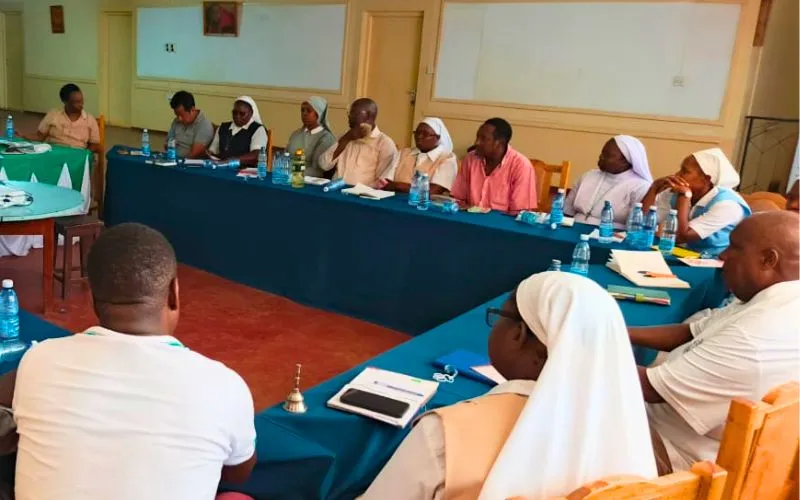 Credit: Catholic Diocese of Garissa/Fr. Frederick Namasaka
Credit: Catholic Diocese of Garissa/Fr. Frederick Namasaka
The trainings, the Kenyan Sister, who has facilitated the Safeguarding Initiative in several other Dioceses in Kenya and in Tanzania said, emphasize that taking proactive measures to protect minors and vulnerable adults is a ministry in the Church.
“The Church has a big requirement for us to create a lot of awareness on prevention of all forms of abuse on children and vulnerable adults,” she said.
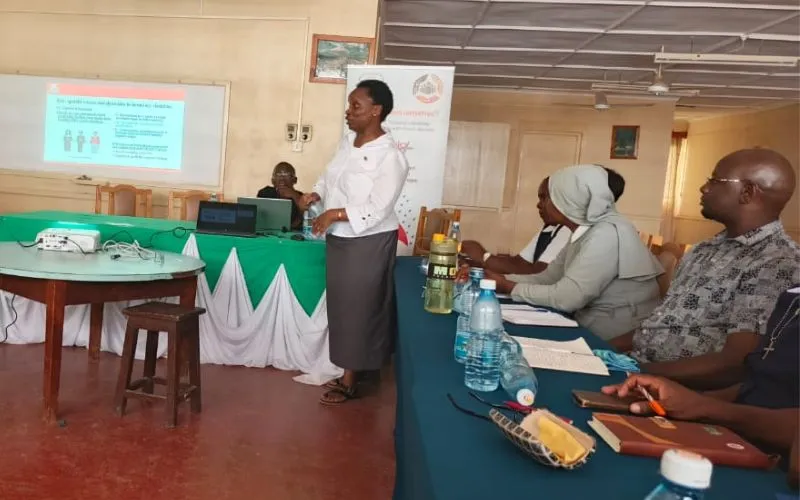 Credit: Catholic Diocese of Garissa/Fr. Frederick Namasaka
Credit: Catholic Diocese of Garissa/Fr. Frederick Namasaka
In the April 3 interview with ACI Africa, Fr. Namasaka lauded the organizers of the training that was realized under the theme, “Safeguarding of Children and Vulnerable Adults: Catholic Church's Perspective”.
He expressed optimism that future training will rope in traditional and Muslim leaders on board.
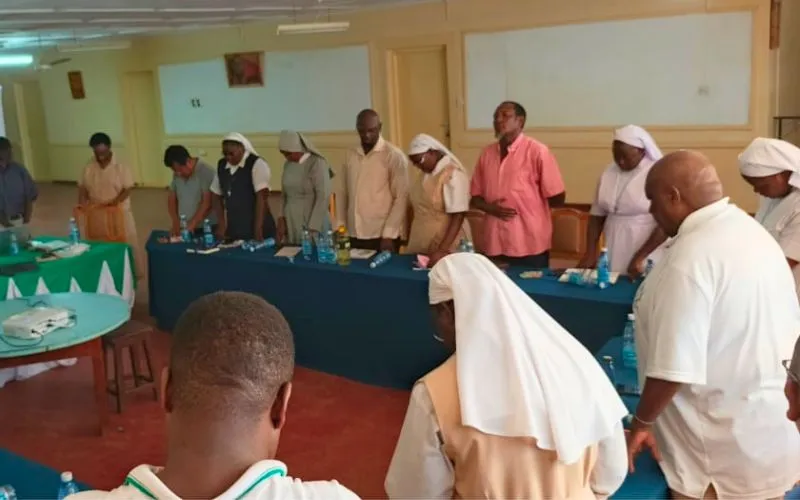 Credit: Catholic Diocese of Garissa/Fr. Frederick Namasaka
Credit: Catholic Diocese of Garissa/Fr. Frederick Namasaka
“Interreligious dialogue has always worked in these places. It is possible to bring people of other faiths on board on this matter of child safeguarding,” Fr. Namasaka said, and added, “All we need is to invite Muslim leaders and traditional leaders in our safeguarding training and they will spread the information to others.”
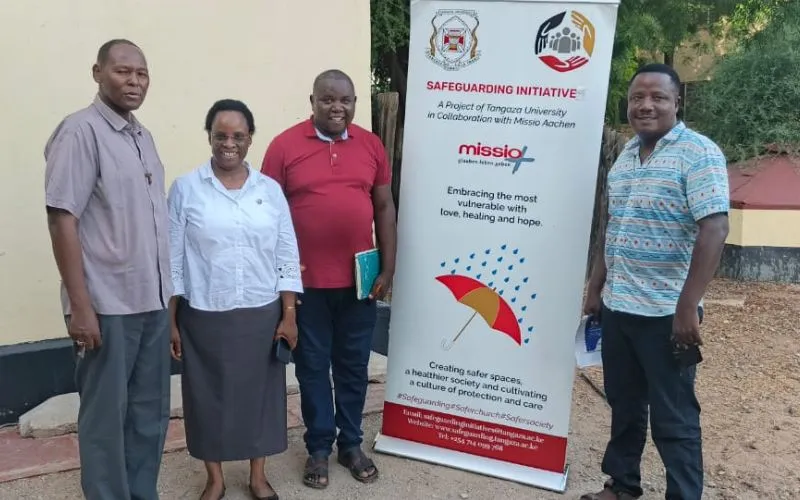 Credit: Catholic Diocese of Garissa/Fr. Frederick Namasaka
Credit: Catholic Diocese of Garissa/Fr. Frederick Namasaka
The Kenyan Catholic Priests said that the training was an eye-opener. “There are many forms of abuse that we never knew existed. All we know is about physical abuse and sexual abuse. But there is a wide range of abuses that we never knew were real abuses. Neglect is also abuse. There is also spiritual abuse. This training has brought that out very well,” he said.
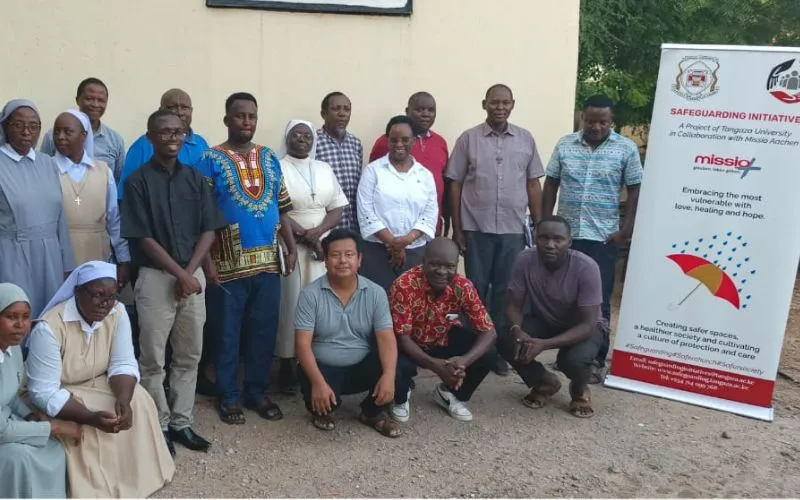 Credit: Catholic Diocese of Garissa/Fr. Frederick Namasaka
Credit: Catholic Diocese of Garissa/Fr. Frederick Namasaka
Fr. Namasaka told ACI Africa that his plans, after the two-day training, was to organize a training with catechists and other pastoral agents that deal with the children in his parish of the Sacred Heart of Jesus, Emmaus.
Agnes Aineah is a Kenyan journalist with a background in digital and newspaper reporting. She holds a Master of Arts in Digital Journalism from the Aga Khan University, Graduate School of Media and Communications and a Bachelor's Degree in Linguistics, Media and Communications from Kenya's Moi University. Agnes currently serves as a journalist for ACI Africa.
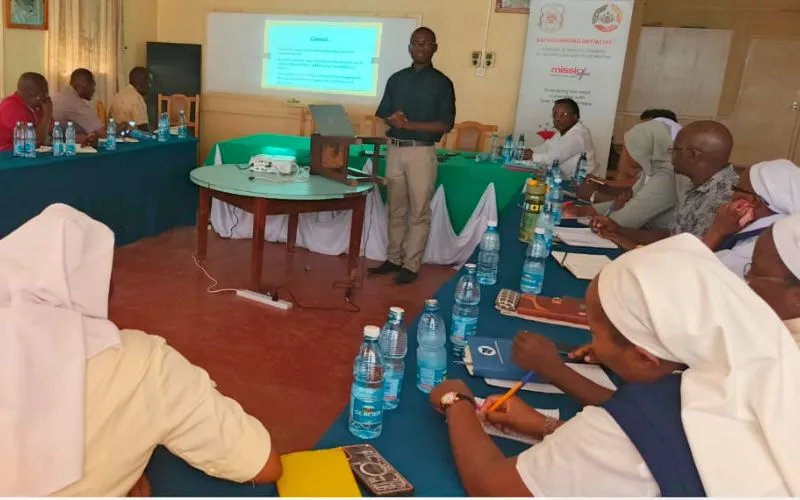 Credit: Catholic Diocese of Garissa/Fr. Frederick Namasaka
Credit: Catholic Diocese of Garissa/Fr. Frederick Namasaka


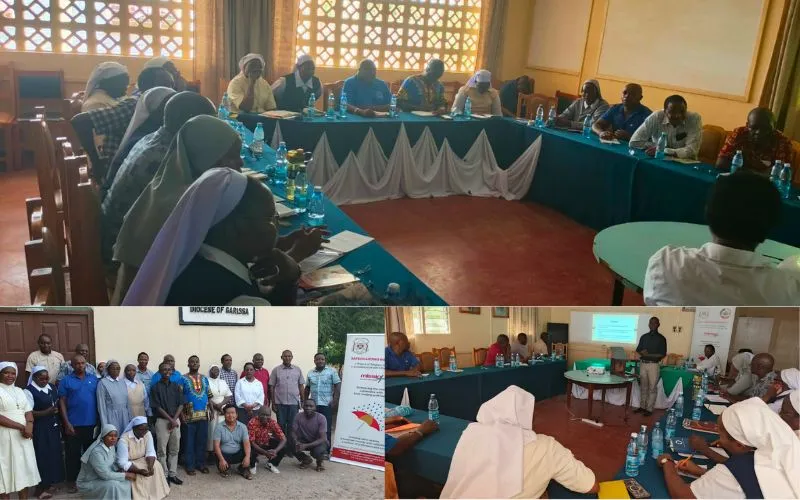
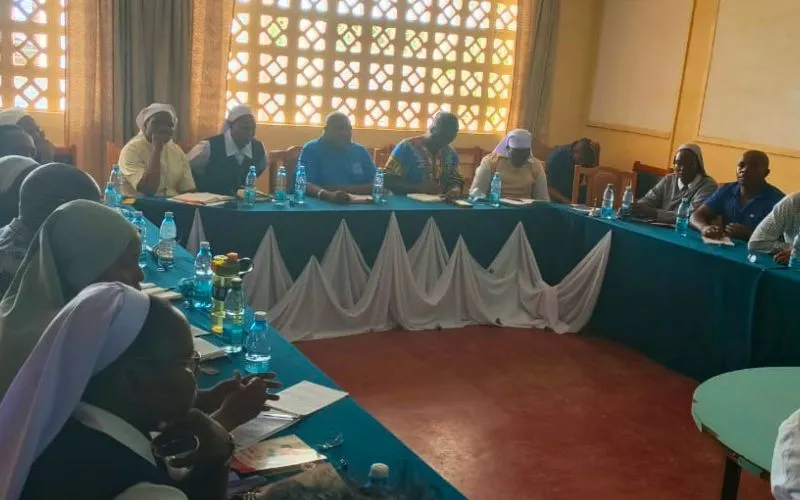 Credit: Catholic Diocese of Garissa/Fr. Frederick Namasaka
Credit: Catholic Diocese of Garissa/Fr. Frederick Namasaka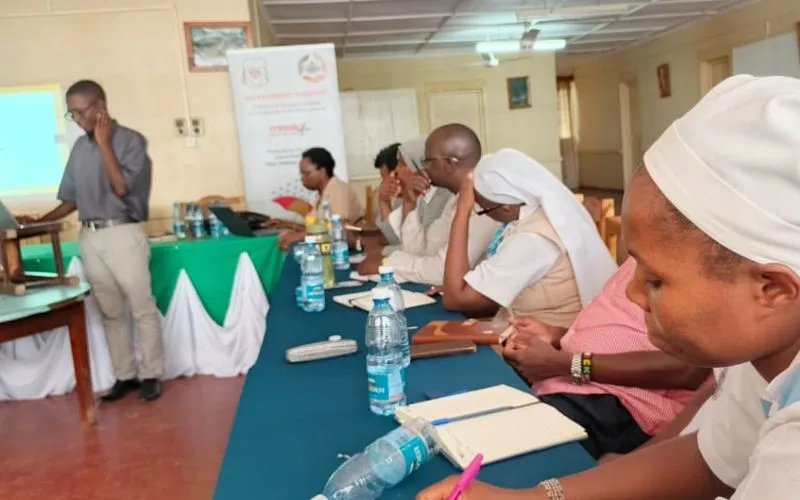 Credit: Catholic Diocese of Garissa/Fr. Frederick Namasaka
Credit: Catholic Diocese of Garissa/Fr. Frederick Namasaka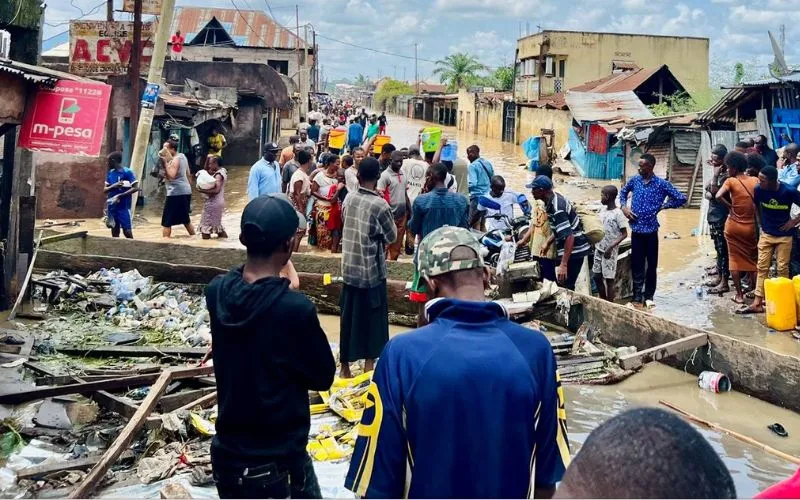
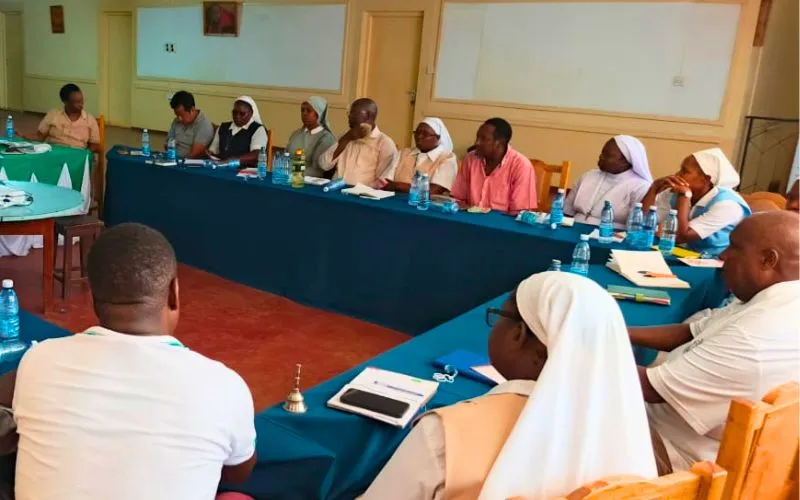 Credit: Catholic Diocese of Garissa/Fr. Frederick Namasaka
Credit: Catholic Diocese of Garissa/Fr. Frederick Namasaka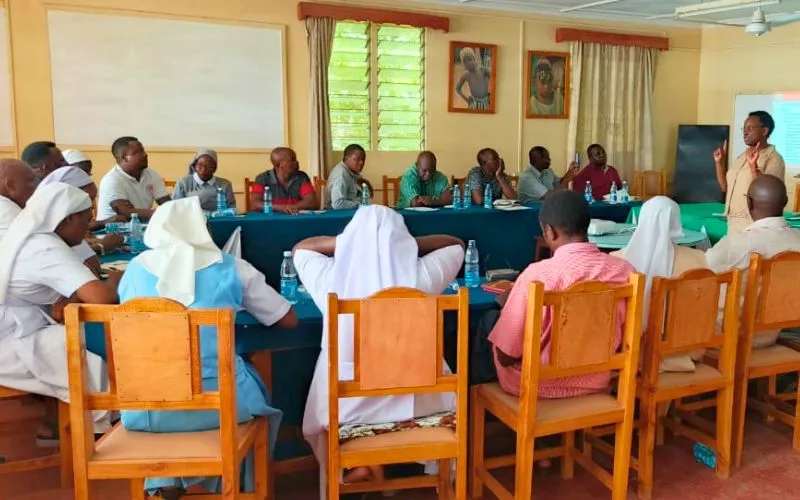 Credit: Catholic Diocese of Garissa/Fr. Frederick Namasaka
Credit: Catholic Diocese of Garissa/Fr. Frederick Namasaka Credit: Catholic Diocese of Garissa/Fr. Frederick Namasaka
Credit: Catholic Diocese of Garissa/Fr. Frederick Namasaka Credit: Catholic Diocese of Garissa/Fr. Frederick Namasaka
Credit: Catholic Diocese of Garissa/Fr. Frederick Namasaka Credit: Catholic Diocese of Garissa/Fr. Frederick Namasaka
Credit: Catholic Diocese of Garissa/Fr. Frederick Namasaka Credit: Catholic Diocese of Garissa/Fr. Frederick Namasaka
Credit: Catholic Diocese of Garissa/Fr. Frederick Namasaka Credit: Catholic Diocese of Garissa/Fr. Frederick Namasaka
Credit: Catholic Diocese of Garissa/Fr. Frederick Namasaka Credit: Catholic Diocese of Garissa/Fr. Frederick Namasaka
Credit: Catholic Diocese of Garissa/Fr. Frederick Namasaka Credit: Catholic Diocese of Garissa/Fr. Frederick Namasaka
Credit: Catholic Diocese of Garissa/Fr. Frederick Namasaka


